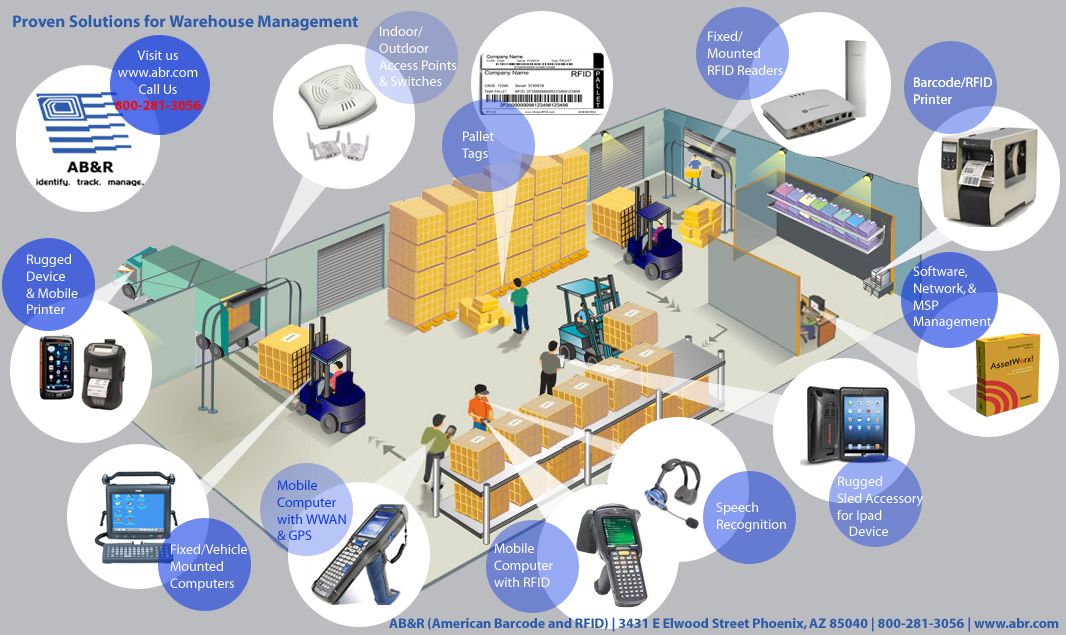In today’s fast-paced business environment, efficient warehouse and inventory management solutions are critical to the success of any company. Warehouses serve as the main distribution centers for businesses, where goods are stored, sorted, and shipped to customers. Managing inventory effectively is essential for ensuring smooth operations, reducing costs, and meeting customer demands.
The Importance of Warehouse and Inventory Management
Effective warehouse and inventory management is crucial for several reasons:
Optimizing space: Properly managing inventory allows businesses to maximize their warehouse space. By organizing products strategically, companies can make better use of available space and minimize storage costs.
Reducing costs: Efficient inventory management helps prevent overstocking and stockouts, which can lead to unnecessary expenses. By maintaining optimal inventory levels, businesses can reduce storage costs, minimize the risk of obsolete inventory, and avoid rush orders that come with additional charges.
Meeting customer demands: Warehouses and inventory management systems enable businesses to meet customer expectations by ensuring products are readily available for shipping. Timely deliveries play a vital role in customer satisfaction and loyalty.
Streamlining operations: Effective warehouse and inventory management solutions automate processes, such as order fulfillment and stock replenishment, making operations more efficient. Streamlining these tasks saves time, reduces errors, and increases productivity.
Enhancing data visibility: By utilizing warehouse management systems and inventory tracking software, businesses gain valuable insights into their supply chain. Real-time data on inventory levels, order status, and demand patterns allows for informed decision-making to optimize operations.
Warehouse and Inventory Management Solutions
There are various solutions available to help businesses streamline their warehouse and inventory management processes:
Warehouse Management Systems (WMS)
A WMS is software specifically designed to optimize warehouse operations. It provides a centralized platform to manage inventory, track products throughout the supply chain, and automate tasks such as order picking and packing. WMSs often integrate with other business systems, such as enterprise resource planning (ERP) software, to provide seamless workflows and accurate data synchronization.
Barcode and RFID Technology
Barcode and Radio Frequency Identification (RFID) technologies play a significant role in improving inventory management accuracy and efficiency. Barcodes and RFID tags are attached to products and scanned at various stages of the supply chain. This allows for real-time tracking of inventory, reducing human errors and providing accurate data for better decision-making.
Automated Storage and Retrieval Systems (AS/RS)
AS/RS systems utilize advanced robotics and automation to store and retrieve products in warehouses. These systems efficiently handle inventory movements and reduce human labor requirements, leading to faster order processing and improved inventory accuracy.
Cloud-Based Inventory Management Software
Cloud-based inventory management software provides businesses with the flexibility to access inventory data from anywhere at any time. These solutions offer real-time inventory tracking, demand forecasting, and reporting capabilities, improving operational visibility and enabling efficient decision-making.
Conclusion
With the ever-increasing demand for efficient supply chain management, warehouse and inventory management solutions have become vital for businesses aiming to remain competitive. By embracing technologies like WMS, barcode/RFID technology, AS/RS systems, and cloud-based inventory management software, companies can optimize their warehouse operations, reduce costs, meet customer demands, streamline operations, and gain valuable insights into their supply chain.
